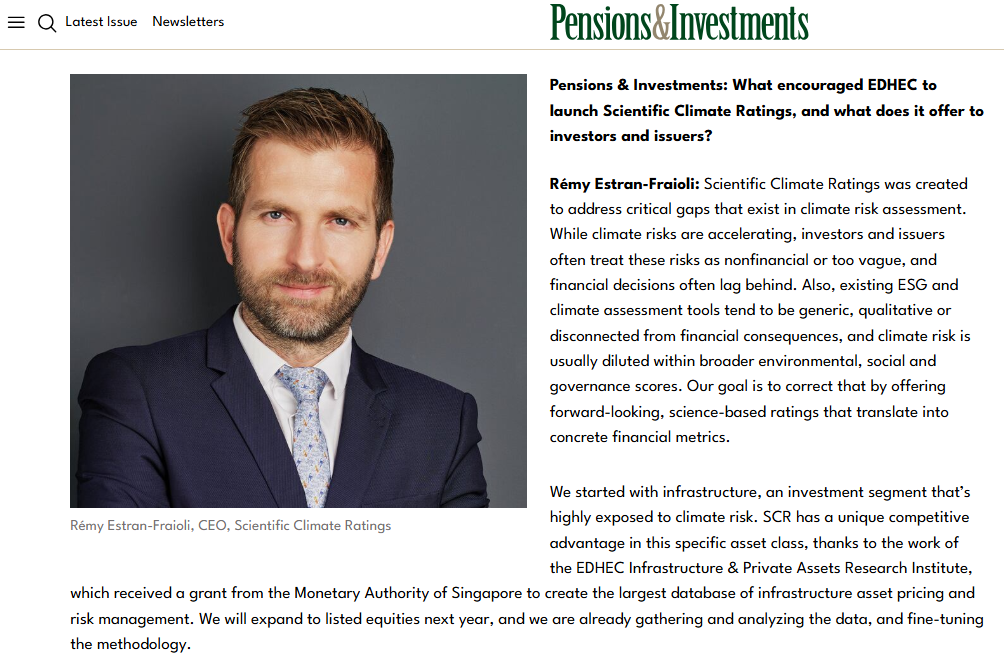
P&I interview with CEO of Scientific Climate Ratings: A scientific approach to quantifying climate risk

In an interview published by Pensions & Investments (P&I), Rémy Estran-Fraioli, Chief Executive Officer of Scientific Climate Ratings (an EDHEC venture), outlined how his agency is redefining climate risk assessment for institutional investors.
The interview, titled “A Scientific Approach to Quantifying Climate Risk”, highlighted how Scientific Climate Ratings delivers forward-looking, science-based ratings that translate complex climate data into expected monetary loss.
Estran-Fraioli noted that while ESG scores and traditional climate risk assessments have failed to quantify how much value was truly at risk, Scientific Climate Ratings has set a new benchmark as the first agency focused exclusively on assessing the financial materiality of climate risk.

Key Discussion Points:
- The agency leverages an extensive climate exposure database and rigorous financial valuation modeling to empower institutional allocators.
- Its methodology differentiates itself by quantifying the monetary impact of climate risk, utilising IPCC-recognised climate models, peer-reviewed damage functions, and ClimaTech, the world’s leading knowledge base for all types of infrastructure, decarbonisation strategies and resilience strategies, along with their levels of effectiveness.
- The agency offers two complementary ratings: Potential Climate Exposure Ratings (PCER) evaluate the current exposure to future climate risk under a continuity scenario, from “A” for low exposure to “G” for high exposure. Effective Climate Risk Ratings (ECRR) translate those risks into expected financial loss under different climate scenarios weighted by their probability of occurrence.
- While the initial users include issuers, infrastructure operators and investors, there is also a growing interest from public authorities including the development banks.
Rémy Estran-Fraioli commented:
“Our ratings are laser focused on the financial consequences of climate risk. In contrast, ESG scores blend governance, social and environmental factors, often obscuring the financial impact of climate risk.”
Read the full article here.
